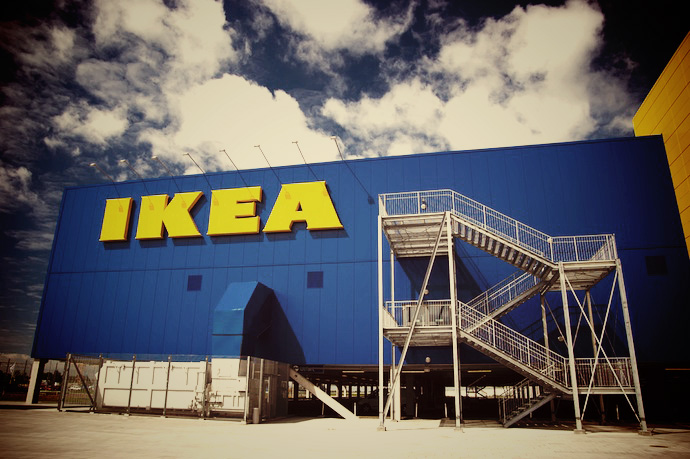Lost In Translation: Ikea Pillow Named ‘Cuddle Rape’
In spite of its best efforts, sometimes Ikea’s names just don’t translate well. The company has invested a good deal of money into ensuring its Swedish product names aren’t offensive to customers in other nations, but most recently the world’s largest furniture manufacturer was left blushing when Google Translate misinterpreted the name of an Ikea pillow designed for side sleepers. When a Reddit user typed in the name, “Gosa Raps” into Google’s translation program, the service returned the English term “cuddle rape.”
Why would Ikea name its product such an offensive name? Well, it didn’t. Another Reddit user, who happens to speak Swedish, pointed out that “raps” can also translate into Rapeseed, a type of plant. In fact, many of Ikea’s pillows are named Gosa plus a flower name, such as “Gosa Tulpan,” meaning “cuddle tulip.”
Ikea is generally very contentious about the possible translations of its product names into other languages. Before launching its stores in Thailand, Ikea spent nearly four years researching how the names of its products translated to Thai, and for good reason. Many of the Swedish names translated into rather crude or vulgar-sounding Thai words. For example, “Redalen,” the name of an Ikea bed, sounds very similar to a Thai term for a sexual act. Likewise, “Jättebra,” an Ikea grey plan pot,” sounds much like a Thai slang word for sex.
To avoid embarrassment, Ikea hired a team of Thai speakers to make sure its more than 9,000 catalog items translated appropriately from Swedish to Thai. If a name bordered on indecency, the word was slightly modified.
Too bad other companies weren’t as diligent as Ikea, they could have avoided some awkwardness. For example, when Kraft launched its global snack food branch Mondelez International last year, it didn’t discover until too late that “Mondelez” sounds like a term for oral sex in Russian. And General Motors had to change the name of the Buick LaCrosse in Canada—after the fact—when it found out “LaCrosse” is slang for masturbation in Quebec.
Remember the Ford Pinto? Of course you do. Americans may have bought up the sedan in hordes, but Brazilians wanted nothing to do with the model because to them, “pinto” means “small male genitals.” How about the “Happy Days” spin-off “Joanie Loves Chachi?” When it aired on the American Forces Network in Korea, “Chachi” was associated with “jaji,” the Korean word for “penis.” Bet Scott Baio had some fun with that one.
Sometimes entire phrases are lost in translation, as well. When Pepsi launched the slogan “Come alive with the Pepsi generation,” it didn’t float with the Chinese. To them, the phrase translated to “Pepsi brings your ancestors back from the dead.” And the Coors’ slogan, “Turn it loose,” means something completely different to Spanish-speaking people. Why would they want to drink a beer that claimed they would “get loose bowels?”










































